#student study methods
Explore tagged Tumblr posts
Text
#effective study techniques#academic success tips#how to study effectively#student study methods#time management for students#productive study habits#study tips for exams#focus and concentration techniques#icse schools in yelahanka new town bangalore#icse schools in yelahanka north bangalore
1 note
·
View note
Text
✧・゜: how i organize my google drive for maximum efficiency :・゜✧:・゜✧





hey lovelies! ✨
i use google drive to organize mostly everything, and the truth is, my google drive used to be an absolute disaster zone, we're talking hundreds of "untitled document" files and random screenshots saved who knows when. but after one particularly stressful finals week where i lost a paper for three hours, i completely overhauled my system. here's exactly how i organize everything now!
⋆.ೃ࿔:・ the folder structure that changed everything ・:࿔ೃ.⋆
first things first, i use a simple top-level organization system:
📁 𝘢𝘤𝘢𝘥𝘦𝘮𝘪𝘤𝘴: all school-related files
📁 𝘱𝘦𝘳𝘴𝘰𝘯𝘢𝘭: journals, goal tracking, finances, etc.
📁 𝘤𝘳𝘦𝘢𝘵𝘪𝘷��: blog drafts, design projects, photos
📁 𝘢𝘳𝘤𝘩𝘪𝘷𝘦: completed classes and old projects
📁 𝘳𝘦𝘴𝘰𝘶𝘳𝘤𝘦𝘴: templates, reference materials, guides
the key is keeping your top level super simple, i used to have 20+ folders here and it was overwhelming! now i can find anything within seconds because i know exactly which category it falls under.
⋆.ೃ࿔:・ my academic folder system ・:࿔ೃ.⋆
this is the most detailed section of my drive! inside my academics folder:
📁 𝘤𝘶𝘳𝘳𝘦𝘯𝘵 𝘴𝘦𝘮𝘦𝘴𝘵𝘦𝘳
📁 class 1
📁 class 2
📁 class 3
📁 class 4
📄 semester schedule
📄 assignment tracker
inside each class folder:
📁 notes
📁 assignments
📁 readings
📁 projects
📄 syllabus
i color-code each class folder to match my physical notebooks and planner tabs, this visual consistency helps my brain switch between subjects more easily!
⋆.ೃ࿔:・ file naming conventions that save me ・:࿔ೃ.⋆
the absolute game-changer was developing a consistent naming system:
for class notes: DATE_CLASS_TOPIC example: 06.10_psych101_memory_systems
for assignments: CLASS_ASSIGNMENT_STATUS example: econ202_midterm_essay_final
for group projects: CLASS_PROJECT_MYPART_VERSION example: marketing300_campaign_research_v2
this might seem excessive, but it means i never have to open files to figure out what they are! plus, sorting by name automatically puts everything in chronological order.
⋆.ೃ࿔:・ my favorite google drive hacks ・:࿔ೃ.⋆
these little tricks make everything run even smoother:
𝘱𝘳𝘪𝘰𝘳𝘪𝘵𝘺 𝘴𝘵𝘢𝘳𝘳𝘪𝘯𝘨: i star current project files so they always appear at the top of my drive
𝘤𝘰𝘭𝘰𝘳 𝘤𝘰𝘥𝘪𝘯𝘨: right-click folders to give them colors that match your physical organization system
𝘵𝘦𝘮𝘱𝘭𝘢𝘵𝘦 𝘨𝘢𝘭𝘭��𝘳𝘺: i keep a "templates" folder with pre-formatted docs for essays, lab reports, notes, etc.
𝘰𝘧𝘧𝘭𝘪𝘯𝘦 𝘢𝘤𝘤𝘦𝘴𝘴: i set important folders to be available offline (has saved me during wifi emergencies!)
𝘴𝘦𝘢𝘳𝘤𝘩 𝘰𝘱𝘦𝘳𝘢𝘵𝘰𝘳𝘴: using "type:pdf" or "after:2023-09-01" in the search bar to filter results
⋆.ೃ࿔:・ maintenance routines ・:࿔ೃ.⋆
even the best system falls apart without regular maintenance! here's my schedule:
𝘸𝘦𝘦𝘬𝘭𝘺 𝘤𝘭𝘦𝘢𝘯𝘶𝘱 (15 min): every friday afternoon, i sort any stray files into their proper folders and rename anything with default names
𝘮𝘪𝘥-𝘴𝘦𝘮𝘦𝘴𝘵𝘦𝘳 𝘢𝘶𝘥𝘪𝘵 (30 min): halfway through each semester, i check that everything is where it should be and create any new folders needed
𝘦𝘯𝘥-𝘰𝘧-𝘴𝘦𝘮𝘦𝘴𝘵𝘦𝘳 𝘢𝘳𝘤𝘩𝘪𝘷𝘪𝘯𝘨 (1 hour): i move completed classes to my archive folder and set up the next semester's structure
⋆.ೃ࿔:・ sharing & collaboration settings ・:࿔ೃ.⋆
as someone who works on lots of group projects, getting these settings right is crucial:
𝘤𝘰𝘭𝘭𝘢𝘣𝘰𝘳𝘢𝘵𝘪𝘰𝘯 𝘧𝘰𝘭𝘥𝘦𝘳𝘴: i create specific shared folders for each group project rather than sharing individual files
𝘱𝘦𝘳𝘮𝘪𝘴𝘴𝘪𝘰𝘯 𝘭𝘦𝘷𝘦𝘭𝘴: i'm careful about giving "edit" vs "comment" access depending on the project
𝘭𝘪𝘯𝘬 𝘴𝘩𝘢𝘳𝘪𝘯𝘨: i always disable "anyone with the link can edit" to avoid accidental changes
⋆.ೃ࿔:・ my best google drive tips ・:࿔ೃ.⋆
create a "quick access" document with links to your most-used files
use google drive's "workspaces" feature to group project files temporarily
download the desktop app to easily drag and drop files
set up automatic google photos backup for screenshots and images
use keyboard shortcuts (shift + n for new folder is my favorite!)
⋆.ೃ࿔:・ final thoughts ・:࿔ೃ.⋆
remember that the perfect organization system is one that works for your brain! mine has evolved over years of trial and error, and i still tweak it each semester. the key is consistency, whatever system you choose, stick with it long enough to make it habit.
xoxo, mindy 🤍

#summer study tips#study motivation#summer productivity#college student summer#study habits#academic motivation#summer classes#summer semester#study inspiration#productivity tips#student life#college tips#study methods#academic success#study schedule#beating procrastination#summer learning#study environment#college student advice#study space#academic tips#student motivation#productive summer#study organization#academic planning#summer routine#study techniques#student productivity#college life#study strategies
204 notes
·
View notes
Text
university princess




#studyblr#study blog#study aesthetic#study motivation#study desk#premed#student#student life#study notes#academic validation#study tips#study method
604 notes
·
View notes
Text
My Study Method
I have quickly mentioned my study method in several posts through the years but I don't think I have ever written a proper post about it, so here it is.
I have to say that overall my study method is quite time consuming, but in years of experience it's what works best for the type of learner I am, the materials I have to study and the type of exams I have. I believe these three elements are the fundamental things you should figure out when creating your own study method. Let's go over these things quickly. Firstly I am an history student, tho not all my exams are history based (I have taken some language, philosophy, anthropology and litterature classes) so my method is proofed for most humanities. I am a learner with terrible memory, if you give me a list of things to learn by heart expect me to fail because my brain simply cannot do that. So I have to train myself to learn things when studying for an exam. As for the type of matherials I have to work with when studying for an exam, they are mostly full non fiction books, sometimes I have to work on articles as well, and depending on the class I have lectures to attend.
The fundamental element of my study method are the notes I write. That's why in my daily posts I am constatly mentioning them. The lectures I attend are turned into notes, the books and articles I have to read are turned into notes, everything you leave me with for too long will be turned into notes. The very act of writing is what truly helps me get into the topic, understand it, and memorize it. I might write an indepth post on how I write notes in the future, but for now what you must know is that the goal of my notes is to be the only material I actually study in the end. As I mentioned the very act of writing is itself a huge part of my study process. When I am listening to a lecture I try to write down notes as tidy as possible, and then try to fix them at home if needed. So there's not much to say there, as for the materials I have to read here's how I do it. When I get a book I have to study I usually read a chapter and underline all the important bits that I will be transferring to my notes as I am reading. When I am done with the chapter and have the topic still fresh in mind I write down by hand all my notes. The goal is to write everything I need to know, in a direct and easy way using my own words. By re-elaborating the original text I am making sure I am not blindly copying things, and actually understanding stuff. Once the entire book has gone through this process, the book goes back on the shelf and as I said I only work on my notes from then one.
Once I have all my notes ready a long time has probably passed, but in reading and writing I have already started to memorize things in general. I try to highlight my notes as I am writing, but in case I don't I go back once I am done writing, doing a quick reread and highlighting important stuff. I usually use two different colours: yellow for the important dates and another colour for the other informations. At this point there's two more steps left. Repeating and writing key words.
If writing notes can be counted as half of my studying, repeating outloud is the second half. Since I have oral exams I have to make sure I am comfortable with exaplaining things, showing I have understood things and I am not just midlessly reciting a list, and using the right terms. I am a very lucky person because my dad is both retired and quite interested in the topics that I study, which means that I get a lot of help from him in this phase of studying, because basically what I do is following him around the house for a few days exaplaining my notes to him. If you do not have someone to annoy with your study, talking to yourself works too but you have to speak outloud and honestly pretend you are giving a lecture. If you just go over your notes and read them it is not the same thing, it's way less effective. I usually do two rounds of repeating. The first one looks a lot more like reading and saying things outloud in my own words. By the second one I am usually much more comfortable with informations so I have my notes there only to guide me through topics making sure I don't miss anything. Having someone who actively listents to you is definitely a bonus because if they ask you questions they challenge you in the exact same way an oral exam does, and you make sure your exaplainations are as clear as possible.
The very last step is going through my notes one last time with the goal of writing a long list of key words. This is a tool I specifically use to review things quickly the day of the exam. Usually during my commute I reread the list of words in my head and I mentally make sure I remember about everything.
As mentioned this is a longer study method but it truly locks things in your brain, and paying that much attention to note writing also makes them a tool that lasts in time. If I am interested in the informations of any of the books I read during my degree I can pick the notebook in which I wrote those notes and find the information right away without even having to open the actual book. I usually dedicate a whole notebook to each book, in order to archive and find them easily. I will be writing a specific post on the way I write notes, maybe including a few pictures, but in the meantime I hope this was somewhat helpful.
#kids i have written this the other day and rereading once so there is surely typos and not perfect sentences but i think it does the job#i am thinking of making one more post on how i write my notes since they are so important to me and then maybe writing a post on oral exams#do let me know if something isn't clear or it you have questions!#when i was still working on creating a stuy method i found posts like these quite useful so hopefully this will be helpful for someone#studyblr#studyinspo#study tips#study method#uniblr#university#historyblr#studying#student life#study motivation#study blog#study advice#mine#the---hermit
144 notes
·
View notes
Text
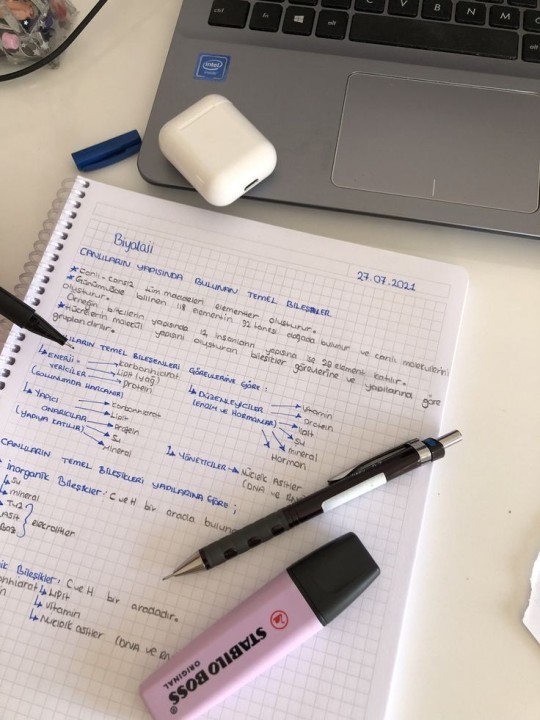
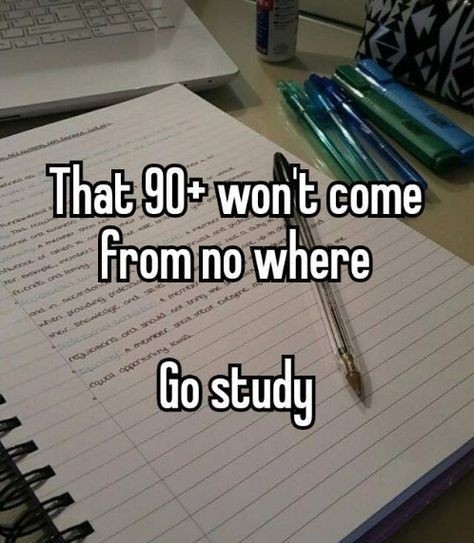
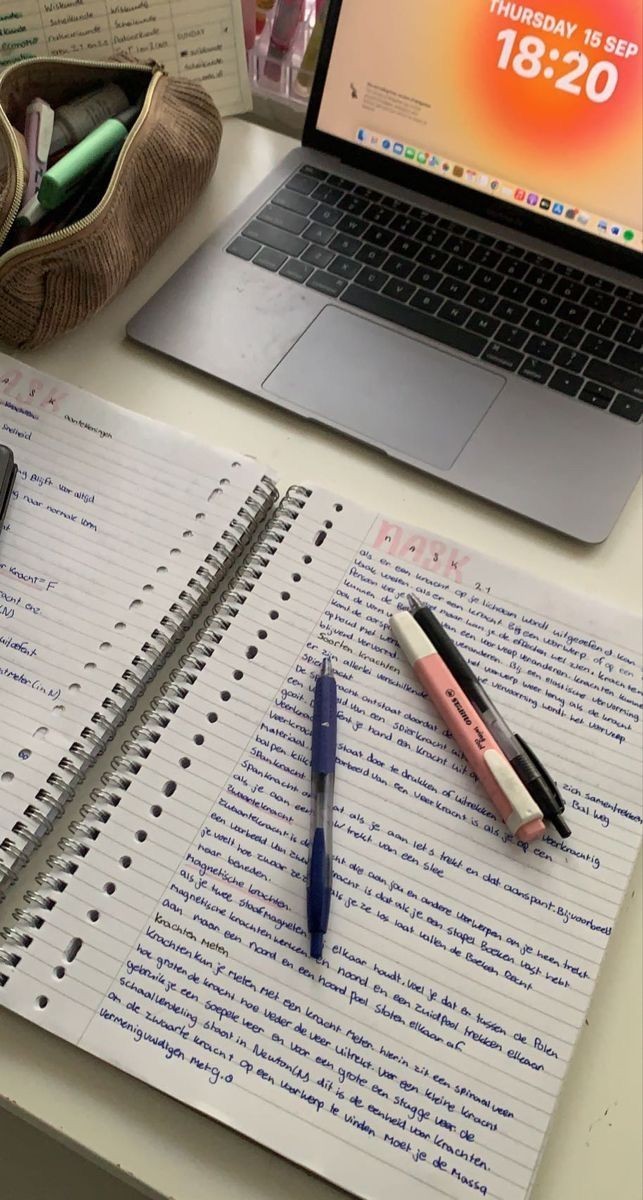
❥﹒♡﹒☕﹒ 𝘁𝗶𝗺𝗲-𝗺𝗮𝗻𝗮𝗴𝗲𝗺𝗲𝗻𝘁 𝘀𝘁𝗿𝗮𝘁𝗲𝗴𝗶𝗲𝘀 𝘆𝗼𝘂 𝗺𝗮𝘆 𝘄𝗮𝗻𝘁 𝘁𝗼 𝗸𝗻𝗼𝘄
𝟭. set SMART goals ( 📒 )
make sure your goals are specific, measurable, actionable, realistic and time-bound. this will help you maintain focus and track your progress over time. how many times has it been you and your unrealistic to-do list against the world? well, it seems that a mile-long to-do list is not a good ally at all. remember that you are a person and not a machine, and that just dedicating four hours to deep work and concentration is A LOT. be kind to yourself and don't overload yourself with more work than you can humanly do.
𝟮. daily planning ( 🧸 )
mea culpa because i'm the first one who doesn't plan their day. to-do lists generally stress me out and make me feel overwhelmed as if i don't manage to complete all the tasks an asteroid will end up hitting the earth. but i recognize that it is a good starting point. sometimes i have too many things to do and i end up doing nothing in total confusion, but having at least a general list to follow gives me more motivation. moreover do we want to talk about the dopamine released when you tick an empty box? marvelous. maybe don't write down tasks that are too onerous and demanding, break them into several smaller tasks, also try to write simple activities such as "drink a glass of water" every now and then. having these low-commitment activities will help you stay motivated while completing more important tasks.
𝟯. reverse-engineering method ( 🪴 )
start with the end goal and work backwards to plan the actions needed to achieve it. this helps you maintain clarity on the steps to take and focus on the most relevant actions. the best thing to do is plan based on the time available and do your best to stick to your daily goal.
𝟰. timer roulette ( ⏳ )
choose a task from your to-do list and set a random timer between 15 and 45 minutes. work on that task with all your concentration until the timer goes off. this helps you fight procastination and keep your mind fresh.
𝟱. mind mapping time ( 📍 )
before starting a study session, take a few minutes to create a mental map of the subject you need to cover. this helps you see connections between concepts and organize information more effectively.
𝟲. task batching ( 🫒 )
group similar tasks together and tackle them in batches. for example, reply to all emails in one session rather than doing so at scattered times throughout the day. this helps you reduce transition time between tasks and maintain focus. contrary to popular belief, human beings are not truly multitasking (only a few possess this great ability) and when we do multiple things together we do nothing but shift our attention from one task to another, greatly reducing the quality of our performance. if possible, try to avoid these switches that are harmful to your focus and concentration.
𝟳. the pomodoro method ( 🍅 )
okay, y'all probably already know this one because it became so popular in the last year but if you don't, the pomodoro method is a time management technique developed by francesco cirillo in the late 80s. it is based on the idea of working for short periods of time, usually 25 minutes, followed by a short 5 minute break. after four rounds of work, a longer break is taken, usually 15-30 minutes. this technique helps improve concentration and productivity, as it breaks down work into manageable tasks and offers regular breaks to rest and regenerate energy. i personally prefer the 50/10 ratio while i'm studying but you decide which time ratio is better for you, i find it really useful and it helps me a lot while i'm studying for my exams.
#college#education#school#academia#note taking#student#study aesthetic#study blog#study inspiration#study motivation#study notes#study space#study tips#student life#study community#studyblr#studyinspo#studyspo#uni student#academic validation#chaotic academia#light academia#dark academia#university life#university#uni life#time management#time management strategies#pomodoro method#productivity
353 notes
·
View notes
Text
Study Tip #18
Get into study mode. Do the same rutine before every study session so your brain relates that to studying. Something small, like lighting a candle, organizing pens by color, preparing coffee/tea on your favourite mug, etc.
#studyblr#study-core-101#study blog#study motivation#student#study#study community#studying#study tips#studying tips#study methods#study techniques#study time#studyspo#study space
62 notes
·
View notes
Text
studying methods + tips⋆.ೃ࿔*:・✍🏽

LEITNER SYSTEM ; an effective way to study with flashcards
create flashcards
all ur flashcards should begin with box one or whatever box number (check the example)
for example ; in a box/pouch you'd label it ; box one cards to be reviewed everyday, box two cards to be reviewed every other day etc.
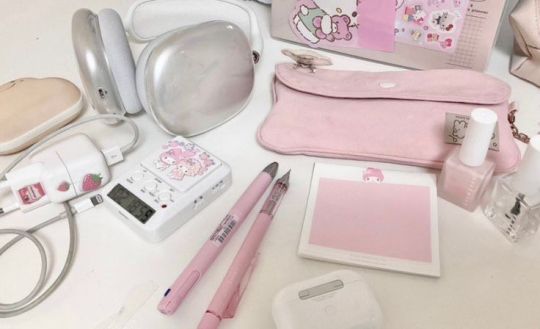

review each flashcard, quiz urself on what u recall/explain the info on each side
if u answered correctly move the card to box two and if u answered incorrectly, move the card to box one
the time frame should be dependent on the amount of time before ur quiz/test that u have to study.
HOT TIP ; treat studying like it's a job and you're getting paid for it. work agreed hours and take arranged breaks as though its a real job.
MORE WAYS TO STUDY ;
add color or diagram your notes and if ur not taking notes, TAKE NOTES
summarize your notes and summarize concepts (if u can explain a concept, thats how you'll know if u studied it enough)
make a concept map
pretend to be a teacher and ur explaining a concept
HOW TO MOTIVATE YOURSELF TO STUDY ;
i watch time-lapse studying videos to motivate myself to study bcuz then it feels like im studying with another person. or i'll set up my phone and film my own time-lapse of me studying to motivate myself.

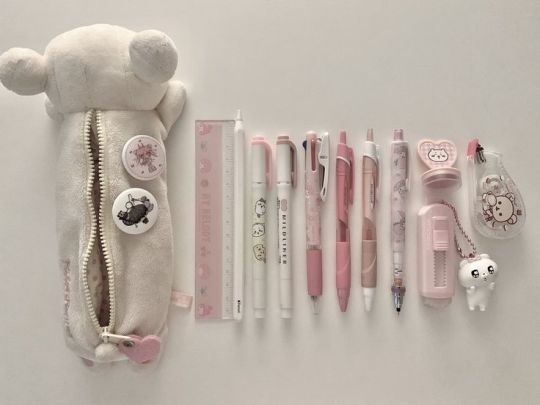
implementing something that u love into studying. for me i love pink and just being a girly girl so i implement pink into my studying by using super cute stationary and that rly motivates me to use my pink tools.
i dont always study in the same locations, sometimes i'll study in a cafe or in the library instead of just studying in my room bcuz sometimes, all we need is a change of scenery.
#advice#it girl#becoming that girl#self care#self love#it girl energy#that girl#honeytonedhottie⭐️#studying#pink academia#academic weapon#academic validation#studying routine#studying inspiration#study methods#self improvement#self discipline#highschool#students#girly#girl blog#dream girl tips#dream girl#dream life
304 notes
·
View notes
Text
Understanding study material 📚 Effective strategies 🤔
Here are some research-backed tips to help you navigate difficulties in understanding study material effectively 💪🏼
1️⃣ Break down complex concepts
Research suggests that breaking down complex concepts into smaller, more digestible parts can aid in understanding. Divide the material into manageable sections and focus on understanding each component before moving on to the next.
2️⃣ Engage in active learning
Active learning techniques, such as summarizing, teaching others, and practicing with flashcards, can improve understanding and retention. Engage actively with the material by explaining it to a study partner or testing yourself with practice questions.
3️⃣ Seek clarification
Don't hesitate to seek clarification from your instructors, peers, or online resources when you encounter difficulties. Research indicates that asking questions and seeking feedback can enhance understanding and fill in knowledge gaps.
4️⃣ Utilize visual aids
Visual aids, such as diagrams, charts, and graphs, can help simplify complex information and improve comprehension. Create visual representations of the material or use existing visual resources to enhance your understanding of challenging concepts.
5️⃣ Connect new material to prior knowledge
Research in cognitive psychology emphasizes the importance of connecting new information to existing knowledge for better understanding. Relate new concepts to familiar ideas or experiences to establish meaningful connections and improve retention.
6️⃣ Practice retrieval techniques
Research studies suggest that practicing retrieval techniques, such as self-testing and quizzing, can strengthen memory and understanding. Test yourself regularly on the material to reinforce learning and identify areas that require further review.
7️⃣ Collaborate with peers
Collaborative learning has been shown to enhance understanding and retention of study material. Engage in group study sessions with peers to discuss challenging concepts, share insights, and benefit from diverse perspectives.
8️⃣ Take breaks and manage stress
Take regular breaks during study sessions, practice relaxation techniques, and prioritize self-care to manage stress levels and optimize your cognitive performance. Read posts about mental and physical health to find more useful information.
#medicine inside#studyblr#study with me#study hard#study time#study desk#desk setup#study notes#studying#study inspiration#study tips#tips to study#medicineinside tips#tips for students#study habits#study method#studyinspo
211 notes
·
View notes
Text

final sem exam has started and so have my longer study sessions, I have recently started studying with these pomodoro videos and they have been very helpful for me.
PomodoroCrew is the channel and their videos are awesome (╹▽╹)
~✿
#data science#data scientist#exams#student life#study#study blog#study motivation#studyblr#studyblr community#studying#pomodoro#study method#uni life#university life#uniblr#uni student#university#university student#college studyblr#computer science#study inspo#realistic studyblr#student#study aesthetic#study space#motivation#coding#lavender
21 notes
·
View notes
Text
✧・゜: summer study tips for when motivation is low :・゜✧:・゜✧





hey lovelies! ✨
can we just acknowledge how hard it is to focus on studying when the sun is shining, everyone's posting beach pics, and your brain is basically melting from the heat? summer studying feels almost criminal sometimes (like, isn't this when we're supposed to be recharging?), but even if you're taking summer classes, prepping for fall semester, or studying for standardized tests, i've got some helpful tips to help you stay on track without missing out on summer magic.
⋆.ೃ࿔:・ why summer motivation hits different ・:࿔ೃ.⋆
let's be honest about why summer studying feels so much harder:
your body literally craves sunlight and outdoor time
everyone else seems to be living their best vacation life
the heat makes focusing genuinely more difficult
your brain is trained to associate summer with freedom
seasonal rhythms are real, and summer is naturally more active and social
knowing this isn't just you being "lazy" is the first step! your brain isn't broken, it's just responding to both biological and social cues that say "put down the textbook and go outside!"
⋆.ೃ࿔:・ create a summer-friendly study schedule ・:࿔ೃ.⋆
the key is working with summer energy, not against it:
𝘴𝘵𝘶𝘥𝘺 𝘥𝘶𝘳𝘪𝘯𝘨 𝘱𝘦𝘢𝘬 𝘩𝘦𝘢𝘵 𝘩𝘰𝘶𝘳𝘴: use the hottest part of the day (usually 12-3pm) when you'd be inside anyway for your deepest focus work
𝘦𝘢𝘳𝘭𝘺 𝘮𝘰𝘳𝘯𝘪𝘯𝘨 𝘮𝘢𝘨𝘪𝘤: if possible, wake up earlier and study when it's cooler and quieter, bonus points for studying outside with birds chirping!
𝘴𝘩𝘰𝘳𝘵𝘦𝘳 𝘴𝘦𝘴𝘴𝘪𝘰𝘯𝘴: aim for 45-minute focused blocks instead of marathon 3-hour sessions (your summer brain will thank you)
𝘵𝘩𝘦 2:1 𝘳𝘢𝘵𝘪𝘰: for every hour of studying, give yourself 30 minutes of true summer enjoyment as a reward
𝘸𝘦𝘦𝘬𝘭𝘺 𝘧𝘳𝘦𝘦 𝘥𝘢𝘺: designate one day each week as completely study-free to recharge
⋆.ೃ࿔:・ summer-proof your study environment ・:࿔ೃ.⋆
your environment makes all the difference:
𝘤𝘳𝘦𝘢𝘵𝘦 𝘢 𝘤𝘰𝘰𝘭 𝘰𝘢𝘴𝘪𝘴: study near a fan or air conditioning with a cold drink nearby
𝘰𝘶𝘵𝘥𝘰𝘰𝘳 𝘴𝘵𝘶𝘥𝘺 𝘴𝘱𝘰𝘵𝘴: find a shaded patio, park bench, or beach setup where you can enjoy nature while studying
𝘴𝘶𝘮𝘮𝘦𝘳 𝘴𝘵𝘶𝘥𝘺 𝘢𝘦𝘴𝘵𝘩𝘦𝘵𝘪𝘤: bring summer into your study space with fresh flowers, lemon water, and natural light
𝘤𝘰𝘧𝘧𝘦𝘦 𝘴𝘩𝘰𝘱 𝘳𝘰𝘵𝘢𝘵𝘪𝘰𝘯: try different iced coffee spots to keep your environment fresh and interesting
𝘴𝘤𝘳𝘦𝘦𝘯 𝘱𝘰𝘴𝘪𝘵𝘪𝘰𝘯𝘪𝘯𝘨: face away from windows showing beautiful weather when you need deep focus
⋆.ೃ࿔:・ motivation hacks that actually work ・:࿔ೃ.⋆
when your motivation is hiding under a beach umbrella:
𝘴𝘵𝘶𝘥𝘺 𝘥𝘢𝘵𝘦𝘴: everything's more fun with friends! find a study buddy and make it social
𝘵𝘩𝘦𝘮𝘦𝘥 𝘴𝘵𝘶𝘥𝘺 𝘥𝘢𝘺𝘴: "tropical tuesday" or "fruity friday" with matching snacks and music
𝘴𝘶𝘮𝘮𝘦𝘳 𝘳𝘦𝘸𝘢𝘳𝘥𝘴: ice cream after finishing a chapter, swimming after completing practice problems
𝘷𝘪𝘴𝘶𝘢𝘭 𝘱𝘳𝘰𝘨𝘳𝘦𝘴𝘴: create a summer-themed progress tracker (fill in a popsicle for each completed study session)
𝘴𝘵𝘶𝘥𝘺 𝘸𝘪𝘵𝘩 𝘮𝘦 𝘷𝘪𝘥𝘦𝘰𝘴: find summer study ambience videos that make you feel less alone
⋆.ೃ࿔:・ summer-specific study methods ・:࿔ೃ.⋆
adapt your approach to match the season:
𝘸𝘢𝘭𝘬𝘪𝘯𝘨 𝘭𝘦𝘤𝘵𝘶𝘳𝘦𝘴: listen to recorded lectures or educational podcasts while walking outside
𝘱𝘰𝘰𝘭𝘴𝘪𝘥𝘦 𝘱𝘰𝘮𝘰𝘥𝘰𝘳𝘰𝘴: 25 minutes of study, 5 minutes of dangling feet in water (or any summer treat)
𝘤𝘰𝘯𝘤𝘦𝘱𝘵 𝘴𝘶𝘯𝘴𝘤𝘳𝘦𝘦𝘯: apply a layer of understanding before exposing yourself to exam questions
𝘷𝘪𝘴𝘶𝘢𝘭 𝘴𝘵𝘶𝘥𝘺 𝘱𝘪𝘤𝘯𝘪𝘤𝘴: spread out colorful mind maps on a blanket instead of linear notes
⋆.ೃ࿔:・ be gentle with yourself ・:࿔ೃ.⋆
most importantly, release the guilt:
summer studying doesn't have to be all-or-nothing
progress > perfection (especially during summer)
your brain literally works differently in hot weather
memories matter too, make sure you're creating some
rest is productive, it's preparing you for future focus
remember that balance looks different in each season. summer might be when you study a little less but live a little more, and that's completely okay. your worth isn't tied to your productivity, especially when the sun is shining and calling your name.
xoxo, mindy 🤍

#summer study tips#study motivation#summer productivity#college student summer#study habits#academic motivation#summer classes#summer semester#study inspiration#productivity tips#student life#college tips#study methods#academic success#study schedule#beating procrastination#summer learning#study environment#college student advice#study space#academic tips#student motivation#productive summer#study organization#academic planning#summer routine#study techniques#student productivity#college life#study strategies
142 notes
·
View notes
Text
GIRL DINNER.




#studyblr#study blog#study aesthetic#study motivation#premed#student#student life#study notes#study desk#academic validation#study space#study hard#study studying studygram studyblr studyabroad studyhard studyspo studymotivation studytime studyinspiration studyinspo studyaccount studyblo#study method#study tips#studying#medicine inside
302 notes
·
View notes
Text


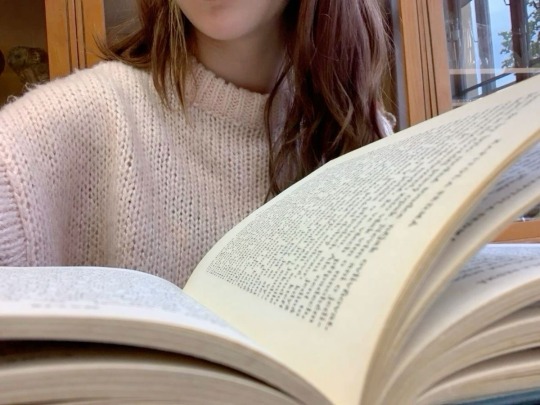
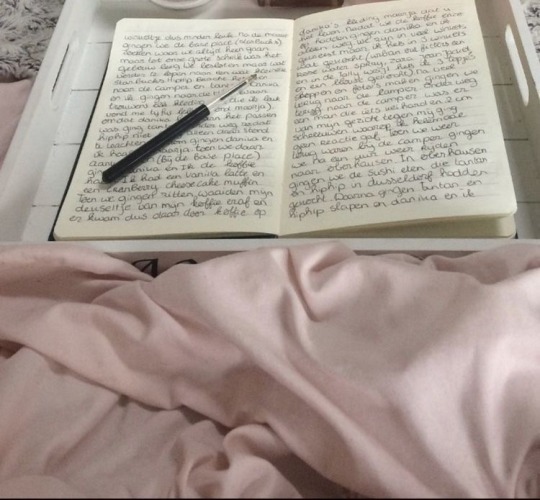

GUIDE TO SCHOOL
Hii! It’s me Kia, and today I’ll be giving you a run down on how I’m improving in school! For context : I’ve always struggled a bit with school but recently I’ve been getting much better at it, I have ADHD which makes it harder to pay attention, but I’ve improved, and here’s how I did it!
Remember : you’re doing this for your future self, you can do this!! Make yourself proud, do something great! You don’t need to study every single day for hours on end, studying can be 15-20 minutes, or however long you want it to be!
Basics overall instructions : minimize your distractions! Keep your phone in another room when studying, get an app that locks your social media apps until a certain time, and turn off your notifications, have a cozy study spot, choose calm peaceful music without lyrics! Active learning is better than passive learning, but mixing them both together is chefs kiss, one day do passive learning, and the next active learning, put what you’re reading into action!! Don’t just let it sit in your head. Practice! Like I said, active learning is amazing! you can practice anywhere, in the line for your coffee, grab your flashcards and do em! Just like that you’ll do the 30 minutes of flashcards you wanted to! Take a look at mock exams and try doing those! Take notes in an organized matter, that makes sense to you!! Explain the material in words that make sense to you. Don’t cram the night before a test, you won’t remember most of it, instead study days in advance, and the night before the test, review the subject!! but most importantly.. listen to your teachers!! Try to pay attention in class, what I do to help me with my ADHD is get a piece of paper, a pen, and scribble on it while my teacher talks, or I use a squishie, or a putty! Something to get me preoccupied as I try to listen to the teachers.
Note taking : when taking notes first do them quickly in class, just try to get all the information word for word. Then, rewrite them: make it more organized, highlight the important parts, add an example, brief and more simplified summary.
Study methods I personally love : My favorite method for English is the 3-2-1 recall method, read it 3x, say it out loud 2x, and write it on paper 1x. Active recall I use flash cards, or I either ask my friends to make random questions on the subject/material I’m learning, and if they’re not there? I ask ChatGPT this prompt “Please create flash cards and quiz questions for me on __”. Feynman method explain the subject as if you were talking to a fifth grade, simplifying it! Blurting, quickly read over your textbook or study guide, and write down as much as you can remember then reopen the textbook/study guide and compare what you wrote on your notebook, to the text in the textbook/study guide!
Math : this subject wasn’t exactly my strong suit, but what I did to make my life easier is relearn everything I learned in middle school-elementary school, yes everything, even addition and subtraction. By doing that I’ve gotten a better understanding, and grasp on what I’m doing now in algebra, luckily for me I have a friend whom is a tutor, and she often offers to tutor me every now and then! Then I’d apply what I learned irl, usually to figure out how much my total or what the discount would be if I’m at.. Sephora or any other store, I would whip out my trusty calculator, but instead I started calculating it myself, active learning(Reading then engaging in the subject and practicing the subject) is better than passive learning(only reading the things you’re learning), math is a subject you have to pay attention to and practice, use IXL or ask your friends to come up with random equations for you, and practice doing those daily!
English : I’d say this is a fairly easy subject, but due to it being easy I’d underestimate it, and the projects assigned, “oh I’ll just do this “Later tonight..” and that’s how I ended up with 10 missing assignments and an F. So my advice for getting better at English? Stay on top of your work, don’t underestimate it! What I did to improve this English procrastination was call my friend for 45 minutes, and we’d do a “silent study”, in the silent study we’d both shut up, and work on our homework, and if we needed help or feedback we’d do a quick wave to each other. Now for improving in writing etc.. is because of a tip I got from an older friend, she told me to write essays on things I like! Likeee.. I’d write an essay on the Percy Jackson series after I’d finish a book, a summary on what happened, how it made me feel.. etc, on the topic of books, reading can also help you heavily improve in English.
Science : to improve in science I make acronyms, lots and lots of acronyms to help with my memorization, an example: “Ricky is left handed” for reactants are on the left. Similar to science I went all the way back to the basics, and relearned them. I started with grasping the core concepts (Laws of motion, atomic structure etc..), then I’d relate this to real life, photosynthesis in plants, gravity affecting objects etc..
Sorry if this is bootycheeks I’m half asleep

#study motivation#study tips#studyspo#study notes#study method#school#highschool#study inspo#study#study aesthetic#student
26 notes
·
View notes
Text

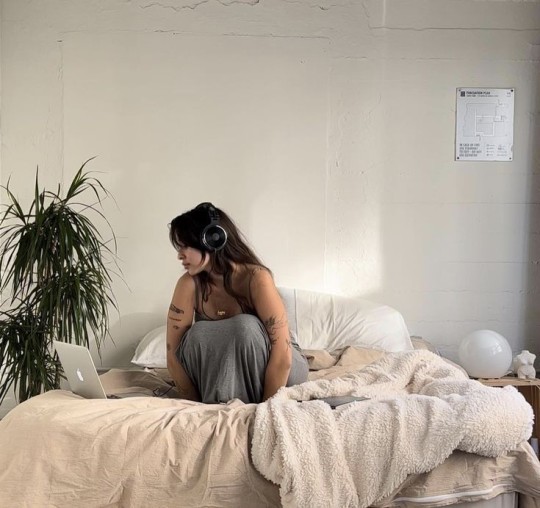

❥﹒♡﹒☕﹒ 𝗵𝗼𝘄 𝘁𝗼 𝗿𝗲𝗰𝗼𝘃𝗲𝗿 𝗳𝗿𝗼𝗺 𝗮 𝗯𝘂𝗿𝗻𝗼𝘂𝘁; this is my personal way of coping with burnout, it may not work for you, but feel free to share in the comments the things that make you feel better when you feel this way ( blogger's note at the end of the post ).
𝟭. recognize the signs ( 🏳️ )
the moment of denial is over. i know, burnouts always come at the worst times when you have upcoming exams and a thousand things to do, but ignoring it won't get you anywhere, on the contrary, it will only prolong the worst, so recognizing and accepting the signs of burnout is the first step to getting out of it. if you don't end it, it'll end you, right? some common symptoms of burnout are exhaustion, excessive irritability, hormonal imbalances, change in appetite (too much or too little), sleep irregularities, increase in nervous tics.
𝟮. take time off ( 🫧 )
allow yourself to rest and recharge by taking a break from work or other stressors. depending on the severity of the burnout you may need an afternoon, or perhaps a couple of days to recover, it's not important, the important thing is that you reserve some deep rest that can really recharge you to start studying/working again. put off all non-essential tasks, put your phone on do not disturb mode and allow your brain to rest. if you have slept little in the previous days, taking a nap will not be bad.
𝟯. set boundaries + practice self care ( 🌱 )
establish clear boundaries between work and personal life to prevent burnout from reoccurring. prioritize activities that promote physical and mental well-being, such as exercise, meditation, and hobbies. i personally love taking care of my body doing beauty treatments that make me feel better about myself. i also deep clean my room and change my bedsheets, if it's true that the mess in our room is a reflection of the mess in our mind i can't see why it can't go both ways: removing the mess from my room is like cleaning my head from the stress in it.
𝟰. rearrange priorities ( 🐝 )
delegate everything you can delegate, you can't do everything alone and it's normal to seek support from colleagues and family. reorganize yourself so you have a plan to follow as soon as you recharge your batteries. ask yourself what led to burnout, was it the workload? in that case breaking it into smaller tasks could make it less onerous. maybe it was it's difficulty? maybe asking for help or using some time for additional research might work. in short, prepare a realistic scheme to follow to tackle the task.
𝟱. seek support ( ❣️ )
talk to friends, family, or a therapist about your feelings and experiences to gain perspective and emotional support.
𝗯𝗹𝗼𝗴𝗴𝗲𝗿'𝘀 𝗻𝗼𝘁𝗲 hi everyone, it's no secret that i've posted very little in the last week, but unfortunately i experienced a bad burnout that incapacitated me for a few days. family circumstances, academic stress and the arrival of spring have added up to take away the strength to do anything from me, but i'm here to recover and here is a simple guide that i always follow when i find myself in these situations. on the one hand i'm happy tho, it's my first burnout since i started university, eight months ago now, i remember that when i was in high school they were much more frequent and long, i feel i've become much more stable.
#college#education#school#academia#note taking#student#study aesthetic#study blog#study inspiration#study motivation#study notes#study tips#studyblr#studyinspo#studyspo#chaotic academia#academic validation#light academia#dark academia#uni life#university life#university#university student#burnout student#burnout#how to deal with burnout#coping mechanism#coping methods
262 notes
·
View notes
Text
Master Post
(will get updated as we post, doesnt include reblogs nor memes/shitposts/today is)
Intro Post
Study Techniques
Highlighting, Highlighting better remake
Feynman
Blurting
PQ4R
How to: Oral Presentations
Visual Aids for Presentations
Flashcards
General Study Tips
Backpack Basics
How to Not Feel Bad about Bad Grades
Multiple Tests at once
Tips for focusing
1, 2, 3, 4, 5, 6, 7, 8, 9, 10, 11, 12, 13, 14, 15, 16, 17, 18, 19, 20, 21, 22, 23, 24, 25, 26
Reminder #1, #2, #3, #4, #5, #6, #7, #8
Study Asks
Motivation to start, pt2
Selfcare/Study Balance
Reducing Screen Time (see the section Others for the better update)
Motivation in general
Rewards
Burn Out
Boring Lit Books
Polls
Study Music
Pomodoro
Academia
Deadlines
Notion
Study Drinks
HS/Uni
Separate Blogs
About Us
10 things about us
Jay's study method (100 notes in that post and ben will be forced to do his part)
Long term goals
Study methods Jay doesnt like
Others
Study Playlists
how do i study graphs aaaaaaaa
Keep Arg Universities Open
?²
Self-Care
Toxic productivity & academic validation
Reducing Screen Time
Asks are always open!
#study motivation#studyblr#study#study aesthetic#study blog#studyspo#study-core-101#student#study community#studyinspo#studyblr community#studying#study tips#studying tips#study method#study techniques#masterlist#masterpost#students#study time#studying inspo#study inspiration
174 notes
·
View notes
Text
June 14 2025, t-23 days

assignments remaining: 136
I tried the blurting method for the very first time, so I want to give my feedback on it. I used it for an exam, and overall I'd give it a 5/10. I cant accurately weigh it because the topics on the exam were almost common knowledge, so I wont know how much it actually helped me. I do have to say that as someone with the memory of a goldfish, it was kind of hard to do but I used it alongside of fill in the blank questions I made myself. I have come to the realisation that I cannot memorise things that I do not understand. I may be able to remember them for a short period of time, but I always end up forgetting them over time. Another aspect I didn't enjoy was how time-consuming it was.
Okay, now, onto the stuff I did like about it. I definitely think it made me understand topics better, and it even made me remember the mistakes I would make, which ultimately helped me remember the topics. Since it was my first time, i knew that I wasn't utilising the method's full potential. Next time I use the blurting method, I'm going to pair it with rewriting notes (something that personally works just fine) and fill in the blank questions.
I am still gonna try other study methods, I'm on the journey to find my studying style. Sorry for the rant y'all (ᵕ—��—)
#studyblr#student#study#study blog#study motivation#studyspo#academia#realistic studyblr#productivity challenge#study challenge#studying method#ellie yaps
13 notes
·
View notes
Text
How to study during bad days 🙇🏻♀️
We all have those days when studying feels impossible. But science-backed strategies can help you stay on track even when motivation is low!
🧠 1. Use the “5-Minute Rule”
Research shows that getting started is often the hardest part. Tell yourself you’ll study for just 5 minutes—chances are, you’ll keep going!
🛋️ 2. Change Your Study Environment
Your brain associates places with tasks. If you’re feeling stuck, try moving to a different room, a café, or even just switching seats.
🎶 3. Listen to Binaural Beats
Studies suggest that binaural beats (frequencies like 40Hz) can improve focus and reduce stress. Classical or Lo-Fi music can also help!
🌿 4. Try Aromatherapy
Scents like rosemary and peppermint have been proven to enhance memory and concentration. Diffuse essential oils or keep a scented sachet nearby.
💡 5. Use the “Energy Matching” Technique
🔹 Low-energy? Do passive tasks like reading or watching study videos.
🔹 High-energy? Tackle active tasks like problem-solving or note-making.
☀️ 6. Get Natural Light Exposure
Sunlight boosts serotonin and helps regulate your body’s natural clock, keeping you alert. If you’re indoors, sit near a window or use a daylight lamp.
🫂 7. Body Doubling for Motivation
Studying with someone (even virtually!) increases accountability. Try joining an online study session or using apps like StudyStream.
🍫 8. Eat Brain-Boosting Snacks
Dark chocolate, nuts, and berries can enhance cognitive function and sustain energy levels. Avoid heavy meals that might make you sluggish.
❤️ 9. Be Kind to Yourself
On tough days, lower your expectations. Even a little progress is better than none. Focus on consistency over perfection.
🔄 10. Use the “Looping Method” for Retention
Revisiting the same topic multiple times in short bursts strengthens memory—this is called spaced repetition and is backed by neuroscience!
💬 Which of these tips do you use on bad days? Let’s help each other out!
#medicine inside#studyblr#study with me#study hard#study time#study movitation#study tips#study habits#study session#study method#mental health support#student help
46 notes
·
View notes